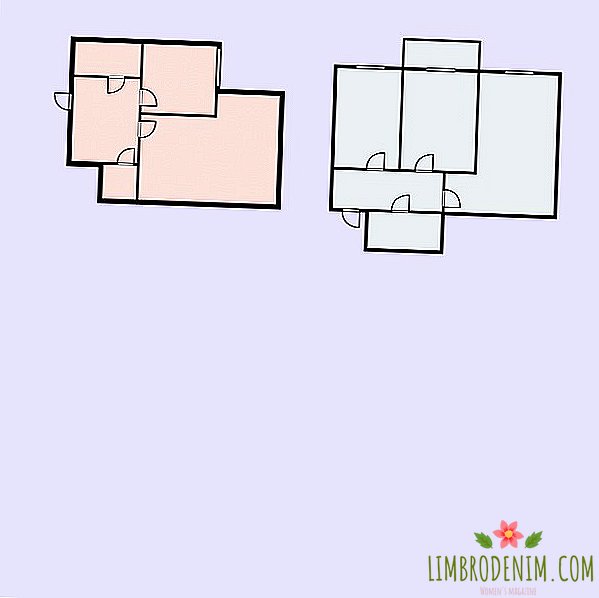Laser correction: Is it possible to return perfect vision once and for all
Vision problems bother youmillions of people around the world. We rarely think about how to preserve the health of the eyes, and only alarm when disturbances interfere with normal life. Optical glasses or contact lenses, which are familiar in this sense, would seem to solve the problem, but for many these measures are associated with greater physical and psychological discomfort.
Laser correction of vision is becoming an alternative solution to the problem, but not everyone is ready to believe in the effectiveness of this procedure due to its associated fears and myths. We talked with the ophthalmologist, head of the ophthalmology department of the LRCC of the Ministry of Defense of the Russian Federation, Alexei Shchekaturov, and found out how to carry out this procedure, how safe it is and whether it is true that it should not be done by those who are planning children in the future.

How much will the "new" eyes cost
Oddly enough, laser correction of visual acuity in medicine is considered a cosmetic surgery - that is, there are no medical indications for it. It helps to correct congenital or acquired ailments: myopia, hyperopia or astigmatism, the so-called refractive errors. Traditional tools, such as glasses or lenses, cope with this task just as successfully, but they have an obvious disadvantage - they must be worn. Glasses are not always comfortable, otherwise because of them it seems that there is something extra on the face, and contact lenses can cause dry eyes and require careful hygiene, which not everyone can follow.
The price of funds for vision correction is also important: according to estimates of the American Academy of Ophthalmology, every year the people of the country spend over $ 15 million on glasses and lenses. Of course, the cost of laser correction is also high and is usually not covered by insurance, but this procedure is carried out only once. Perhaps, therefore, in the same US demand for it does not decrease: every year there are more than 700 thousand operations.
In Russia, the price range only in the capital can vary from 30-40 to 80-100 thousand rubles both for one and for both eyes. Much depends on the choice of clinic, doctor, and also on the type of correction itself. "When you see badly from the age of ten - says Anna D., - the opportunity to gain normal vision, and not to suffer with glasses and lenses is priceless. I had myopia, about minus eight. I am absolutely happy with the result of the correction, I can say it’s worth money spent. A couple of days after the operation, the visual acuity of my eyes was almost one — about 95%, and a week later both eyes were already 100% visible. "
How to carry out the procedure
Both myopia and hyperopia are connected with the fact that the rays of light, having passed through the cornea, the lens and the vitreous body, are not focused on the retina, but behind it or in front of it. This may be caused by the anatomical features of the eye (too short or lengthened eyeball), and the gradual loss of the ability to accommodate. At the same time, the lens and its supporting muscles become less elastic; the lens ceases to easily adapt to the resulting image, changing its shape - and the focus shifts, and the image becomes fuzzy. There are also operations to replace the lens - but with laser correction it is easier to do, changing the shape of the cornea, the surface layer of the eye itself, and seeking to focus the image in the right place. The task is not to thin the cornea, namely, to change its shape, that is, to make it flatter or, conversely, convex.
Technically, the operation is not very complicated and takes only a couple of minutes: several layers of the cornea (the most convex part of the eye) are “evaporated” with a laser beam so that the image can focus on the retina again, as it should be. To date, there are many types of procedures, but it is crucial to determine one feature - whether the patchwork patchwork or flapless. In the first case, for example, when using the LASIK method (Laser-Assisted in Situ Keratomileusis), at the initial stage of corneal surgery a flap is made (they can also be called “flap” - from English “flap”), which then, like a book page, folds to the side. On the opened area, the laser corrects the shape of the cornea by individual parameters calculated by a special program even at the examination stage. At the end of the procedure, the flap is applied back. Vision is restored within two hours after surgery; photophobia immediately passes, the tearing decreases, the “mote in the eye” feeling disappears. A person sees clearly without any aids and may get behind the wheel on the same day (although doctors recommend to be safe and ask your loved ones to pick you up from the clinic).
“I had myopia, minus 6.5,” says Polina. “I wore lenses, but really wanted to do a laser correction. The procedure lasted about seven minutes. As soon as I got up from the operating table, I started to see perfectly, although at first everything was light fog (this is a normal symptom, warned about it). After the procedure, the discomfort is associated only with the fact that anesthesia is taking place: the eyes are watering, there is tingling. But you can’t touch them at that moment! as if nothing had happened .
When flapless correction, the so-called PRK (photorefractive keratectomy), the doctor does not form a flap. Before the operation, the surface layer of the cornea is removed mechanically (this is called scarification), and then a laser is operated on the “cleaned” area. Since the flap is not used, the eyes after such a procedure are very vulnerable and they need additional protection from external stimuli: light, dust and others. In this case, the patient will not be able to go home right away: he will have to spend two or three days in the clinic until the surface layer of the cornea is restored.
Are there any restrictions?
The choice of method depends not only on the wishes and financial capabilities of the patient, but also on a number of medical factors - the decision should be made only after a thorough ophthalmologic examination and consultation with a specialist. In some cases, the operation has to be abandoned altogether.
“My situation was quite specific,” Alexandra says, “I have a genetic disease, cystic fibrosis. Because the lungs do not work very well, I often cough. Doctors in the clinic after the examination said that“ you can do something like that ”- and this "Like" I was alarmed. In the evening before the correction, I climbed into the Internet and watched a video about exactly how it was done. And I became scared: during the operation I needed to lie still, and if I suddenly start coughing, it will probably spoil everything and I will be left without eyes. In general, I decided to perez fucking and still live with minus 3.5 and minus 5.5 ".
In general, laser vision correction is relatively safe, if some contraindications are excluded. The simple and widespread LASIK allows you to return to everyday affairs almost immediately, but there are situations when you need to do a PRK operation. For example, if the cornea is quite thin (on average, it should be about 550-600 microns), the doctor may recommend flapless correction. For occupations and sports where there is a danger of mechanical damage to the eyes, PRK is also better suited. But it is important to understand that any type of laser correction implies a reduction of the cornea by 100-130 microns, so you need to weigh the pros and cons again if your performance is, say, below 500. Severe thinning of the cornea can lead to holes in it (perforation) and other unpleasant consequences that will have to be treated.
Another serious contraindication for laser correction is progressive myopia, that is, deterioration of vision per diopter and more per year. In this case, you should wait until the minus stops on its own, or conduct a series of strengthening operations to stabilize. If at an ophthalmologist with a regular check-up every six months or a year your indicators do not change for some time, and there are no other contraindications, then you can safely do the operation.

From what age do they make a correction and will it not interfere in the future?
“I’ve been thinking about laser vision correction for a long time, but I still can’t make up my mind,” Nastya shares her concerns, “discrepancy of opinions has been preventing me. I’ve been talking about the operation for eight years now, and all this time they are afraid that the correction cannot be done in my youth ( 22 years old) - allegedly the vision then drops again. Others believe that the operation should not be done before giving birth, because then there may be problems during childbirth. When I talked about this with the doctor, she also waved it off - the young one was still ". In fact, according to Alexei Shchekaturov, any adult person can make a laser correction, regardless of their age at the time of the procedure. Eye growth ends in adolescence; if after the operation vision deterioration occurs - this is not due to age, but, for example, to the fact that, before correction, progressive myopia was not stopped. Of course, as with any operation, it is impossible to completely eliminate the risk, and even an experienced specialist cannot guarantee that everything will always be fine after laser vision correction. At the same time, the total percentage of complications after surgery is extremely low, and many of them can be successfully eliminated during the rehabilitation phase.
Lack of children is not a cause for concern either. Laser correction carried out before pregnancy will not affect its course and the health of the child, and the condition of the eyes after birth will not deteriorate. Much more serious is the presence of undetected and uncorrected changes in the fundus, which can manifest themselves later. Therefore, before pregnancy you should check with an ophthalmologist - like other specialists - and try to improve your overall health. The operation is not performed during pregnancy and generally recommend to postpone until the end of breastfeeding.
Is it possible to make a correction after 40 years?
“I have astigmatism, the doctor prescribed me glasses that I wore for about two years,” says Anya E. “They had a headache all the time, it was hard to carry them. I thought the lenses were better and asked their parents as a gift for the New Year, but my father suggested laser correction. He did it himself more than ten years ago and was very pleased. At first I doubted that the word “operation" scared me. Then I looked at the clinic website, read reviews. But what most convinced me was visiting the clinic, where I was examined for more than two hours. I was sure that there ampuyut this correction to all - the testimony, and without them, but it's not Mom was not allowed to have surgery due to age, said that after forty is no longer possible. ".
Laser correction, according to Alexey Shchekaturov, is not contraindicated after forty years and can improve vision even with age-related changes (presbyopia), although a few years ago there was no such possibility. This, however, does not mean that the eyes will cease to grow old; the procedure will not save from further presbyopia, and after a while the vision may deteriorate again. In addition, cataract and other diseases often develop in old age, in which laser vision correction is not done. Nevertheless, the main reason for the ban on the operation is the presence of contraindications, and not a specific age.
How to care for eyes after surgery
If you talked with a specialist, did all the examinations and realized that the laser correction suits you, all you have to do is not to worry about the pain. The operation is performed under local anesthesia, so the maximum that can be felt is some inconvenience. “There was a moment,” says Anna D., “when you seem to go blind for a while: your eyes are open, but you don’t see anything - this is a bit unpleasant psychologically. Another kind of sucker is placed on the eye to fix the pupil - the sensations are also so-so."
Rehabilitation lasts about two weeks. At this time, the doctor prescribes ophthalmic antibiotics, anti-inflammatory drugs to reduce the swelling, as well as the so-called tear substitutes, which may be needed for a period of time and after the abolition of other drugs. While the eyes are restored, it is worth refusing to visit the pool, sauna or bath. Correction can be done in the summer, when the sun is most active, but then in no case can one neglect sunglasses, since direct exposure to ultraviolet radiation after the operation is much more dangerous. The rest of the lifestyle does not change, and the visual load, if you, for example, read a lot or work at the computer, is not contraindicated.
“The operation itself takes no more than five minutes,” says Anya E., “everything was quickly and calmly. After that, protective lenses were put on (they used to give funny bandages). The next day you arrive, everything is removed, and then a new life begins. I was driving on the subway and thought: “Why did I make new eyes, I now see all the flaws." I returned home and happily threw my glasses on the top shelf. Now more than two years have passed, I can see well. Periodically I start to panic when my eyes hurt - I'm afraid that I will check my eyesight and it turns out that it has deteriorated. But In fact it is due to the strong tension, and should just sit less less for your computer and phone. "
Laser vision correction can significantly ease the lives of those who suffer to suffer glasses and contact lenses. Of course, to think about it more rationally when the eyes see very badly. Among other things, this is exactly the case when the principle of "measure seven times, one - cut off" must be followed almost literally: illiterate consultation will not only nullify the effect of the procedure, but also cause a lot of health problems. Statistics, however, show that 90% of patients are satisfied with the results of laser correction. According to Alexey Shchekaturov, nowadays such an operation makes it easy, safe and, as a rule, to get rid of vision problems forever. You will have to decide whether you personally need it after consulting a doctor - although a couple of reviews from friends and recommendations from relatives will definitely not be superfluous.
Photo: Roman Milert - stock.adobe.com, vvvita - stock.adobe.com





